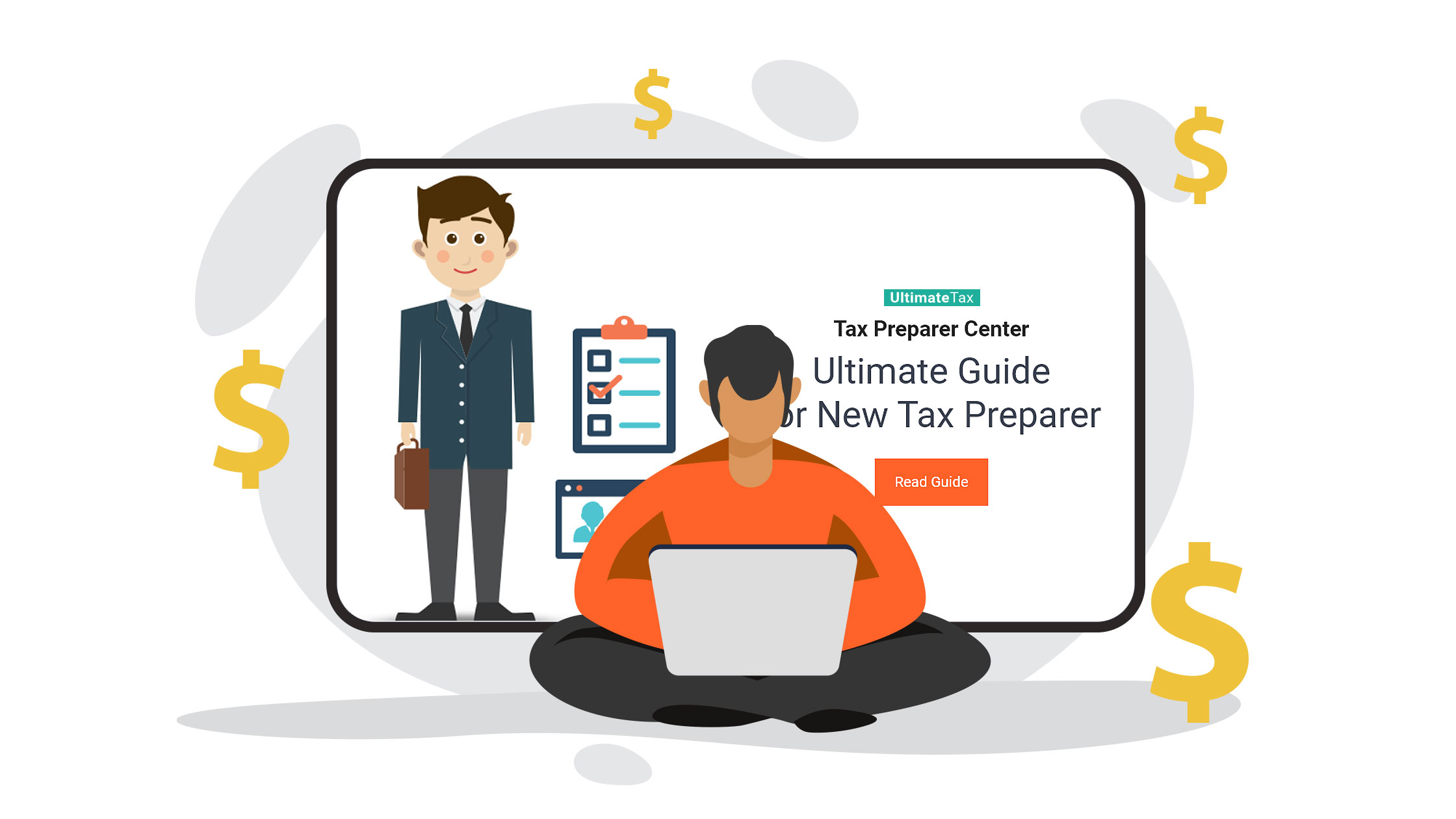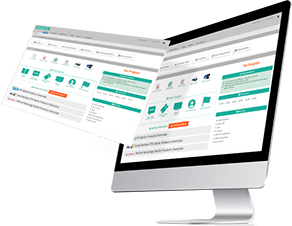Goals for Your First Year as a Tax Preparer

Setting goals is part and parcel of your job as a tax professional. It is part of the service you offer your clients. They’ll come to your office and ask you to help them with reducing the next year’s tax payments. You get tasked to help them come up with a plan.
Such expertise can also be applied to your own business. Although you’ll want to widen the scope beyond the question of tax payments. Your plans and goals should be concerned with how you are moving the business forward. How are you finding and retaining clients? How are you keeping costs down? How are you getting work done efficiently?
Before you begin running your tax office startup, take a seat and write down a list of goals for your first year as a tax preparer.

Monetary Goals
You’re in this to make money. That’s the long and short of it. You want to run a successful business that brings in a good income.
But you should set a more specific goal. The value of having a goal lies in giving yourself a concrete target to hit. This is a major motivational factor. You will find yourself inching closer and closer to the target, which can motivate you to work harder in reaching it.
Seeing your progress is also highly motivating. When you can tell that you’re getting somewhere, that you’re closer to your target now compared to yesterday—that’s very self-affirming and encouraging.
On the other hand, if you set yourself an impossible monetary goal, you may find your progress disheartening. You want to give yourself a goal that is somewhat ambitious, but also realistic.
Be sure to do your research. Find out how much other tax preparers in your area are earning. Keeping in mind your costs and your competition, attempt to calculate what you can expect to earn over the course of one year.
Professional Goals
You are building a professional life and reputation. As you begin your practice as a tax preparer, you’ll find yourself almost in the same league as an accountant or lawyer. It’s important to build up your credentials and establish your professional name.
For your first year in business, you want to create an image of yourself as a trustworthy tax professional. That would be your primary objective. Secondary objectives might include being accepted by your peers in the tax industry, becoming an active member of the local business community, and building a network of valuable contacts.
“Network, network, network” is a well-known business mantra, and one you need to take to heart. No matter what your industry is, it helps to shake hands with the right people. Sometimes you’ll need to cut deals, or seek referrals, or join events, and having good contacts can make things happen.
Your first year will only be the beginning of what could be a lifelong career. Work on developing your professional image from the start. Be a trusted name among tax preparers in your area.
Personal Goals
Your professional life is also part of your self-development. Be mindful of the value in seeking to grow as a person. In many ways, this is the same thing as developing your professional repute. Crafting your image relies on proving your reliability and integrity as an individual.
Self growth provides benefits beyond an influence on your professional standing. You may find it having an impact on your social life and even your self-image! You might find yourself making more friends, not only among clients and business associates, but in your local community. You may find yourself feeling happier about your place in the world.
Another possible outcome: greater ambition and stronger inner motivation. As you achieve professional and personal growth, you may gain confidence to set higher goals for yourself.
Personal goals are bound to vary from person to person. Here are a few possible suggestions:
- Be reliable in personal life and business
- Be a person of honesty and integrity
- Deliver on all promises made
- Learn new professional skills
- Learn new life skills
- Be a better leader
- Be a mentor to others
- Be more of a team player
- Master time management
Social Media Goals
As you consider your professional and personal goals, think about how these interact with your use of social media. It is a significant aspect of life in the digital age. Very few people can opt out of the social media sphere.
Your business will certainly benefit from social media exposure. It remains a good marketing tool, and is relatively inexpensive. But keep in mind that social media marketing can be tricky to master. Unless you are highly skilled at using it, you won’t want social media to dominate your time.
Either way, you should spend some time strategizing about how best to approach social media networking. Start by deciding what platforms you plan to use. There are a lot of options, but practically speaking, you’ll probably go with Facebook and LinkedIn. Or possibly LinkedIn alone.
Plan your approach to status updates, comments, and photos. Your choice of profile picture will matter—not only the pic on your business profile, but the pic on your personal account. Think of the image you wish to project, and make sure that all aspects of your social media posts reflect it.
Remember that your social media goals shouldn’t only refer to your business accounts?—you have to think about your personal accounts as well. For example, if your business is not on Twitter, but you do have a personal Twitter account, be mindful of what you post on that account. Your interactions as an individual can easily have repercussions on your business.
Refocus Your Vision
The first year of a business can be exhilarating as well as stressful. At some point, it can get so stressful that you feel yourself losing motivation. That’s normal, and it’s not a problem as long as you can get your motivation back.
How do you get even more motivated after dealing with tax business headaches? While there are many solutions, you probably want to start with recalling your vision for the business. What was it you set out to accomplish?
If you started your tax business without having a clear vision, take the time to define your vision now. It is a statement of purpose, which will set you on a path toward achievement and growth. You can start by asking questions. What do you wish to achieve? How do you expect your business to grow?
A vision is a powerful motivator. It gives you clarity and direction. It provides a focus for channeling your efforts at achievement. Every step you take that brings you closer to realizing the vision is a point of encouragement.
Build a Great Team
The success of your business depends on having a productive team. Keep that in mind when you are seeking new hires. Look for people who have the right skill set for the role they will inhabit in your company.
But you want to look beyond an applicant’s skills. You also want to evaluate their attitude and motivation level.
Furthermore, you may want to do a “vibe check.” Do you feel that the person is someone who will prosper under your supervision? Or do you feel your personalities would clash? While you can’t expect a perfect sync, you definitely don’t want to bring in someone who would cause issues for you. Remember, you are building a team of people you’ll be dealing with for years to come!
After you have put together your team, you can’t leave it at that. Stay on top of things. See that everyone is communicating clearly and effectively with one another. Make sure that people are working together smoothly and productively. If any issues arise within the team, act quickly to rectify the problem. Make changes to the team if you feel you must.
Master Your Software Systems
Every tax preparer relies on professional tax software to process tax returns for their clients. Anyone not using software is likely to get left behind, given that newer and fresher tax professionals enter the industry each year. The new entrants are tech-savvy as well as hungry and ambitious.
Tax preparation software enables you to process tax returns more quickly. You’ll get more done, and you’ll be free to take on more clients. That will lead to better earnings. Your tax software subscription will pay for itself in no time!
With so many software products on the market, you may find it hard to decide which one to use. This Professional Tax Software Comparison Chart will help you come to a good decision.
UltimateTax is one of the best tax software programs for new tax preparers. It is simple to learn and use. It has functionality comparable to more expensive software products. You can try it out for free, if you don’t feel ready to make a commitment just yet.












